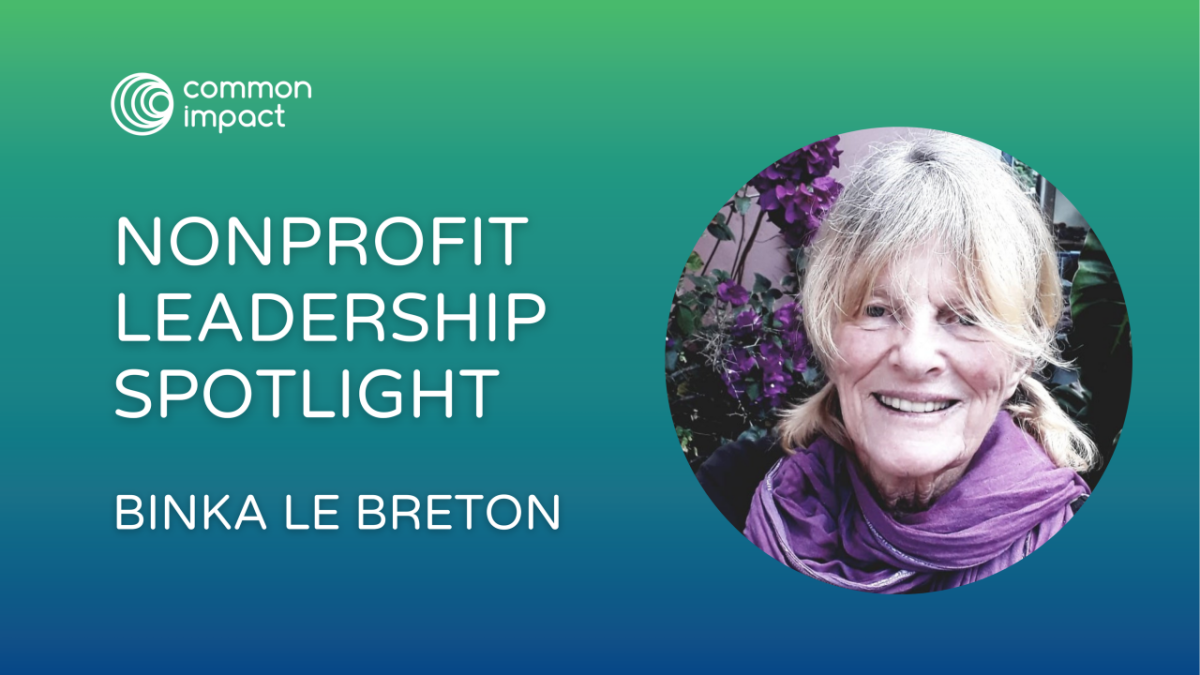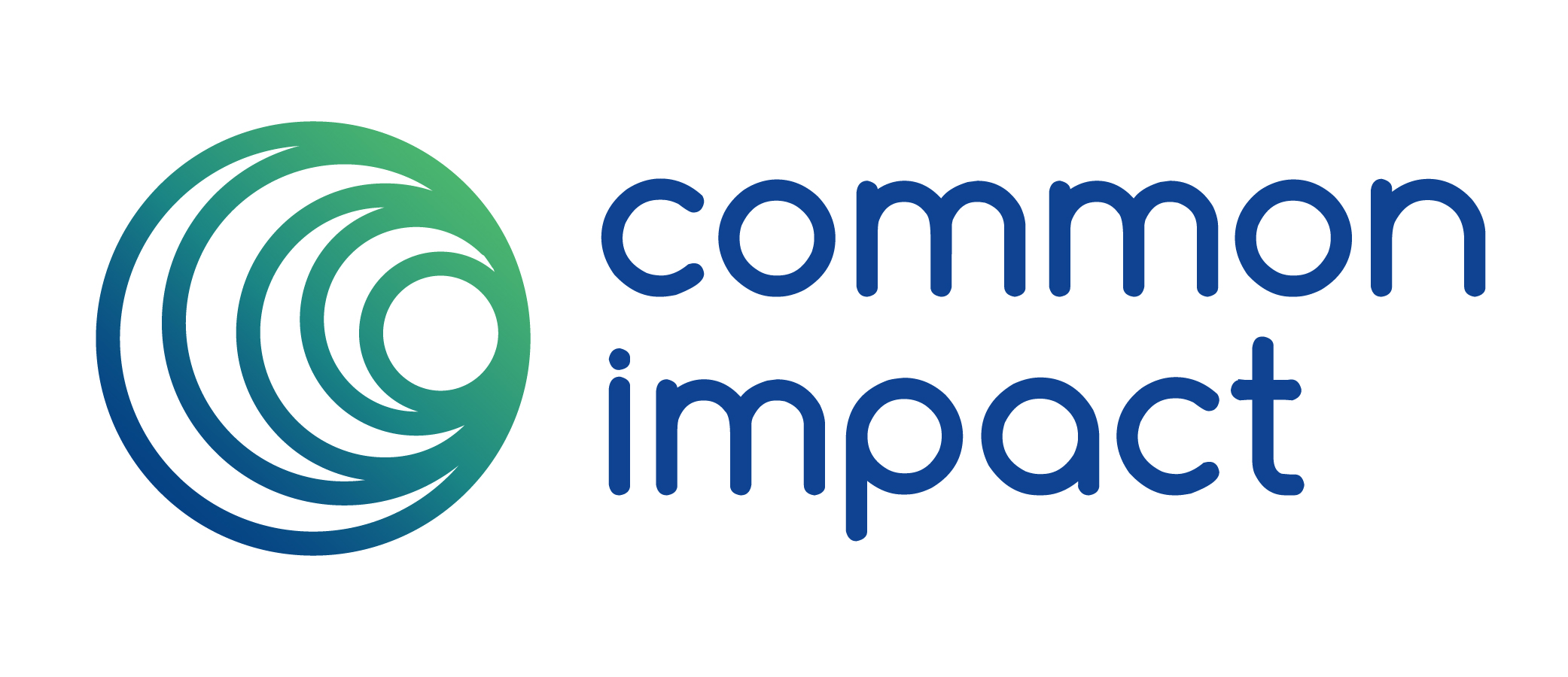Nonprofit Leadership Spotlight: Binka Le Breton, Iracambi Rainforest Research and Conservation Center

Common Impact highlights outstanding leaders at the forefront of climate action and sustainability.
Today we head from Binka Le Breton, an award-winning author, environmentalist, and activist. Binka lives in Brazil’s Atlantic Forest, where she co-directs Iracambi Research Center and serves as an International Leason. Iracambi is a Brazilian non-profit dedicated to figuring out better forest care methods and protecting its extraordinary biodiversity while generating forest-based incomes and raising living standards for local communities. Iracambi’s primary mission is to plant 1,000,000 trees by 2030 as part of its commitment to restore its section of the Atlantic Rainforest – one of the world’s top biodiversity hotspots!
Consider Iracambi’s variety of volunteer, research, and partnership opportunities.
Every time I look out of the window to see the rainforest, I realize how important it is to ensure that it survives and flourishes. There is no time to lose!
You wear many hats – from speaker, author, board member, leader, and everything in between. Tell us why you do the work that you do and how your work has evolved over the years at Amigos de Iracambi and then Iracambi Rainforest Research and Conservation?
When we think about the planet’s future, for our children and their children and all the children to come, it’s clear that two of the most critical issues of our time are the twin crises of climate and biodiversity loss. Here at Iracambi, we are based in one of the most important global biodiversity hotspots: Brazil’s Atlantic Rainforest. And we work precisely at the interface between climate and biodiversity as we focus on restoring the forest for all forms of life, human and non-human.
The planet faces all manner of thorny problems, but the climate is something I can make a difference in. Our goal of planting a million trees by 2030 will help to stabilize the climate by enabling carbon capture, facilitating the production of clean water and pure air, stabilizing soils, and restoring and expanding habitat for biodiversity.
Since the pandemic, Iracambi Conservation and Research Center has grown in response to the increased awareness of the climate crisis. Tell us about the role cross-sector partnership has played and their response to the work you do.
The pandemic forced us, like many others, to make a hard stop and reevaluate our mission, goals, organizational structure, finances, and everything else. One of our programs (volunteers and interns) closed down completely. We also had to shut down our education programs since we needed more support to transition to an online platform. In the interim, we focused on planting more trees.
We decided to aim high and set ourselves the ambitious goal of planting a million trees. And we discovered that people show up to support you once you set an ambitious goal. In 2021 our primary support came from the private and academic sectors – all pro bono. First, we had an international team based in East Asia and Australia, who helped us put together a corporate brochure to attract corporate funding. Then, with the help of a group of post-grads from the Said Business School at the University of Oxford, we examined the potential of carbon financing. As we learned about the carbon market, we refined our corporate brochure with the help of a business school intern from Denmark. Shortly after that, we had a cold call from a firm in Silicon Valley which gave us a significant financial donation towards our forestry program.
How have Iracambi Rainforest Research and Conservation’s needs changed over the past few years? How have you utilized skills-based volunteering to increase your organization’s capacity and deepen community impact?
Our needs have changed significantly as our core team has tripled in size, our annual budget has increased year on year, and our goals, both in forest restoration and environmental education, have become more ambitious. As described above, skills-based volunteering (in addition to our willingness to take risks) brought us to new heights, and we’re not stopping there!
In 2022 our first corporate coaching came in the shape of a hackathon. Six volunteers from a large AI company in the US, facilitated by Common Impact, gave us a set of guidelines on how to grow our organization as sustainably as possible across our programs and administrative sectors. A hackathon volunteer, who doesn’t speak Portuguese, told us these sessions were as valuable to her as they were to us. Soon after, we were given a marketing makeover by the London office of an international marketing company. Towards the tail end of 2022, we finished a six-week coaching session with the Brazilian office of a large international corporation, in the course of which we examined every part of our organization, from financial planning to project management, managing human resources, and every aspect of running a successful business.
During the first few weeks of 2023, we’ve been working with an in-person volunteer systems engineer to streamline our workflow in the highly complex business of seedling production and delivery of the correct species of trees to the planting sites. This is a complex process since planting sites have specific characteristics: altitude, soils, access to water, species suitable for that particular area, comparative ease/difficulty of access, and innumerable other variables!
Addressing climate change can seem daunting, but luckily, we don’t have to do it alone. Why is community and strong leadership pivotal in addressing climate change? Feel free to share an example based on your experience.
Yes, indeed! Our Forests4Water restoration program arose in response to the farmer-led desire to do something about the effects of an unusual drought that affected their on-farm water supply, sometimes to the point that their springs dried up. By planting trees on steep mountain slopes in water catchment areas, rainfall can infiltrate the soil instead of creating runoff and erosion, the water table is replenished, and water supplies are protected. Of course, it’s essential to have community buy-in. Since our rural community members are mostly subsistence farmers, they must see the benefits of individual or collective actions addressing climate change.
On the other hand, if a smallholder farmer is presented with the opportunity of becoming part of a carbon financing scheme that may or may not bring some financial return several years later, he is less likely to be interested. So, while strong leadership is important, it’s also important that people, especially rural people. It is vital the see the economic benefit of planting trees and their ability to grow crops.
Corporate board rooms may appear far removed from rainforest destruction and environmental disasters. How can corporate leaders and philanthropists become more aware and include environmental issues in their work?
The whole ESG discussion is highly relevant in this context because businesses need to attract and retain new customers, clients, and talent. The emerging generations are increasingly demanding products that serve their needs and are made by companies with a strong ethos regarding the three pillars of environment, sustainability, and governance. The mantra People and Profit is being replaced by People, Planet, and Profit, which benefits us all.
About Common Impact
Common Impact is a national nonprofit that works to build a society in which individuals and businesses invest their unique talents towards a shared purpose: strengthening the local communities in which we live and work. Founded in 2000, Common Impact has partnered with Fortune 500 companies and hundreds of the country's leading nonprofit organizations to create transformational change through skills-based volunteering. Learn more about Common Impact's services, impact, and clients.

